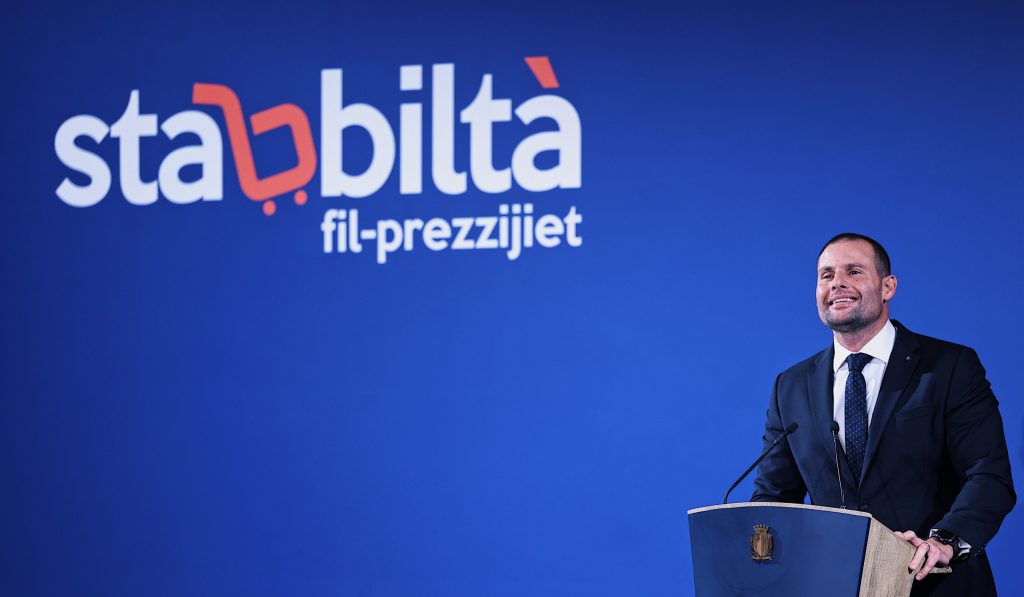The government declared that, in an effort to counteract growing inflation and support social welfare, it has launched a bold economic initiative called “Stabbilta”: a voluntary price limiting program. The government has taken a unique cooperative approach by encouraging businesses to voluntarily lower the cost of necessities to 85% of their Recommended Retail Price index in October. This effort, which calls on businesses to play a crucial role in stabilising the economy, is a cooperative venture rather than a traditional price-fixing mandate.
The main goal is to lower the cost of needs, particularly for those most impacted by the inflationary trend. By concentrating on necessities, the programme provides aid mostly to those who are struggling with rising living expenses, especially low income groups whose expenses mostly revolve around purchasing necessities.
Is Stabbilta a traditional price-fixing policy?
The voluntary adoption of Stabbilta means that the programme is different from traditional extreme left economic policy. The programme addresses the need for affordable necessary items, whilst the voluntary participation approach still respects the characteristics of the free market by allowing firms to opt-in and make it part of their corporate social responsibility.
This project can be viewed as an example of a middle-ground approach to economic policy, weighing the benefits of a free-market economy against the necessity of government involvement in areas of importance to social welfare. Such a strategy might prove to be a model for future policy, providing a strong substitute for conventional pricing control techniques reminiscent of Mintoff’s economic policy.

Inflation control comes with low cost
The initiative stands out also for its cost-effectiveness. The financial burden on the government isn’t expected to be too significant, as this scheme isn’t expected to cost more than €800,000. This pragmatism is rooted in the goodwill that the government cultivated with businesses during the COVID-19 pandemic. By providing significant support to the business community during the crisis, the government created a foundation for a strong bargaining position and moral high ground in asking for reciprocity. This is a much more prudent way of dealing with inflation when compared to the cheque distribution method it adopted in 2022.
Now that the government has finally taken advantage of this connection, companies are more likely to take part in the price-capping plan. Additionally, as their participation shows a dedication to social responsibility and community support, firms stand to achieve improved reputations and client loyalty. The choice of whether or not to engage by businesses may unintentionally expose their profit margins on necessities. Businesses that don’t participate can notice a decline in customer loyalty. With this in mind, some argued that although this is a ‘voluntary measure’, retailers do not really have a choice.
It is important to note that importers and retailers are not expected to make a loss with this scheme but take a cut in their profit margins on essential products. There is also the argument that these lower margins may be compensated by higher sales volume, particularly from middle-class consumers who might decide to spend more on non-essentials.
The opposition also fairly noted that businesses might be inclined to slightly raise prices for non-essential products to offset costs, but this is less concerning than inflation impacting essential items like food.
Potential Market Concentration?
While Malta’s price capping initiative marks a positive stride in economic policy innovation, it is essential to acknowledge its inherent limitations. A crucial aspect to consider is the voluntary nature of participation. This framework means that the overall impact of the initiative is heavily dependent on how many and which businesses choose to engage. There exists a palpable risk that some key players in the market may opt not to participate, potentially diluting the effectiveness of the scheme. The extent of small shops participation will hinge on the extent of price reduction by their direct importers since they do not benefit from direct importation or economies of scale
With so many variables in an economy, the end result of Stabbilta will have to be analysed after a few months. However, one realistic scenario is that the lower prices will lead to increased market concentration, with the big players likely to be better positioned to deal with profit cuts, compared to the smaller players. The government has acknowledged this concern, with the €125 financial aid being provided to the smaller players. However, whether this figure is sufficient or not is very debatable.
Another aspect to consider is the temporal nature of this initiative, set to conclude with the Budget of 2024. The effects of this cooperation ending on market dynamics and business behaviors are, at this point, a matter of speculation. Questions arise about the potential market adjustments post-initiative and whether businesses will revert to their previous pricing strategies or adapt new ones based on the outcomes of this scheme.
Furthermore, there are challenges inherent in monitoring and enforcement. Ensuring that businesses adhere to their commitments under this voluntary agreement requires a robust mechanism for oversight.

Leave a Reply